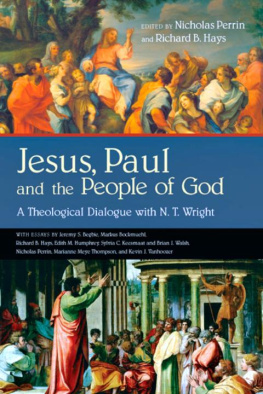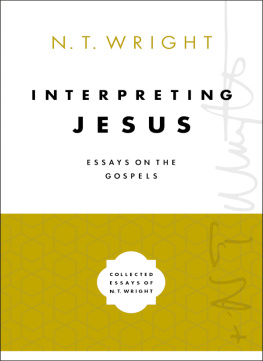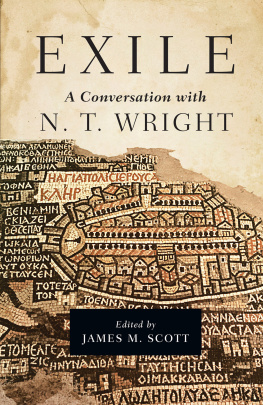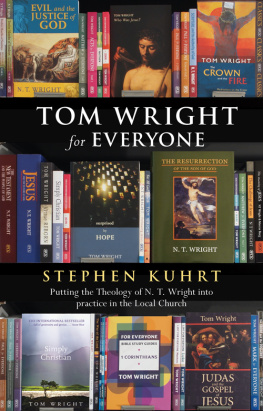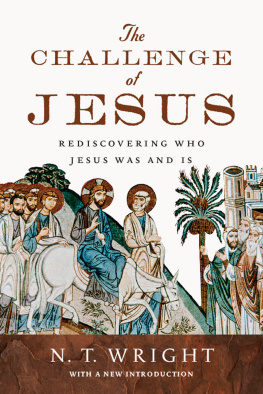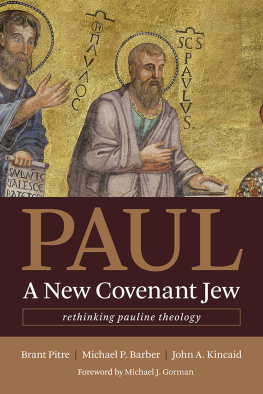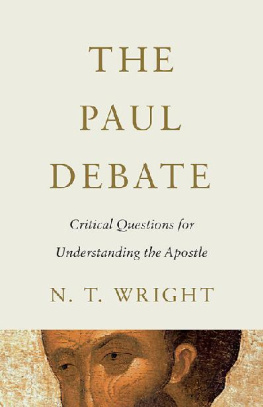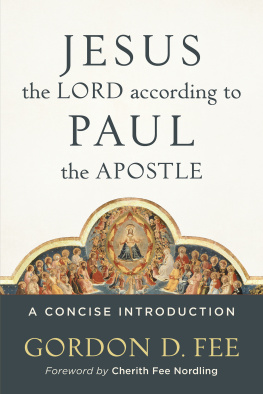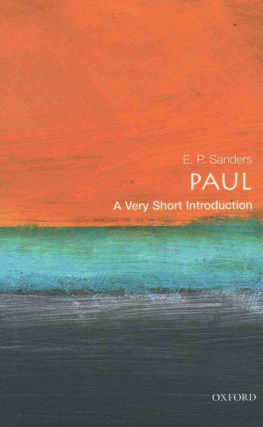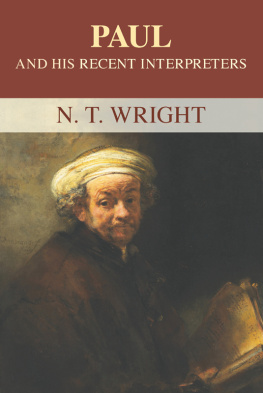Nicholas Perrin and Richard B. Hays







PART ONE: JESUS AND THE PEOPLE OF GOD
PART Two: PAUL AND THE PEOPLE OF GOD
NICHOLAS PERRIN
IN THE INTRODUCTION TO HIS 1914 English translation of Albert Schweitzer's first book on Jesus, The Mystery of the Kingdom of God, Walter Lowrie writes:
As best as we can tell, Lowrie was right. Schweitzer's breathtaking account of an apocalyptic historical Jesus, presented in both Mystery of the Kingdom and The Quest of the HistoricalJesus (1910 [1906]), had met with mixed reviews from both liberal and conservative peers. And, generally speaking, where one did not find mixed reviews, there was an icy silence. Even with his Paul and His Interpreters (1911), a comparatively restrained work which sought to emphasize the apocalyptic and mystical side of the apostle to the Gentiles, Schweitzer would not get a much better reception. In fact, the liberal scholar Ernst von Dobschiitz was so scandalized by Schweitzer's "thoroughgoing eschatology" that for a time he even dedicated himself wholly to refuting the position, Today, one may be forgiven for wondering whether Schweitzer ever regarded his hard-hitting experience as a young scholar to be a kind of mental preparation for his later experience of World War I. As in modern-day warfare, so in the academic guild: stick your head too far above the trench and you will undoubtedly draw fire from opposing lines.
But when it came to Schweitzer's accounts of Jesus and Paul, matters were even more complicated than one might expect in a typical war. For in this regard, as Lowrie also rightly points out, Schweitzer faced not one but two opposing lines: a conservative trench manned by those who were accustomed to reading Jesus and Paul according the Biblicist tradition, and on the other side a counterpart which did not take kindly to calls to surrender its much-loved liberal lives of Jesus and Paul. This is not to say that no one across the theological spectrum saw promising glimmers of hope in Schweitzer's account-some certainly did. For respondents on both sides, Schweitzer's conclusions made for a handy sledgehammer capable of destroying the icons of the opposing theological positions. But even here there was a nagging ambivalence, for even the most fervent iconoclast had to recognize that the hammer of an apocalyptic Jesus and mystical Paul swung both ways: conservative and liberal icons alike would have to pay the price-and that was a cost too dear. Nor did it help matters that at the time Schweitzer's argument resisted any categorization within easily recognizable schools of thought. In this sense the Alsatian was neither fish nor fowl, and paid his own price accordingly. Transcending the categories and camps of his own day, he fell victim to his own daring and originality.
When I consider the life and writings of my friend N. T. (Tom) Wright, I am struck by certain comparisons and contrasts with the life and work of Schweitzer. First, there is a relatively obvious comparison in relation to their respective portraits of Jesus and Paul. By his own acknowledgment, Bishop Wright offers us a Jesus that bears a certain family semblance to the Jesus of Schweitzer. To recall a memorable metaphor from Jesus and the Victory of God, Schweitzer and Wright share the same Autobahn. Likewise, for Schweitzer as for Wright, mystical union with Christ is central to their mutual understanding of the apostle Paul. While Schweitzer and Wright are far from two peas in a pod, they nonetheless share certain basic views on Jesus and Paul.
There is a further point of comparison between Tom Wright and Albert Schweitzer: both figures in their own time managed to defy conventional templates of "conservative" or "liberal." In the case of Schweitzer, Lowrie is undoubtedly right that both conservatives and liberals had trouble "digesting" him. In the case of Wright, his work too has resisted such labels as "conservative" or "liberal," even as he has been simultaneously invoked and dismissed by both. Perhaps, indeed, this fact makes for one of the most compelling yet finally intangible evidences that Tom Wright, in his accounts of Jesus and Paul, is onto something. In any case, Wright and Schweitzer have shared a mutual determination to remain as historians unhindered by the constraints of theological tradition. Of course neither writer is simply interested in history for history's sake; they both have theological interests. But in their respective studies of Jesus and Paul, both in their own way insist on keeping theology off the stage, even if it was found to be waiting in the wings all along. Or as Bishop Tom puts it elsewhere in this volume, it's a matter of Scripture "setting the questions rather than establishing the answers." Quite apart from personal judgments as to the merits of this approach or even its possibility (as shall become clear in the following pages, certain contributors to this volume raise their own doubts on this score), it is impossible to deny a certain verve and freshness that comes of it. Apart from such new and bold ways of looking at the historical Jesus and the historical Paul, theology itself runs the risk of becoming either hopelessly abstract or desperately stale. When the bread of theological conversations begins to harden on the shelf, both the church and the academywhether they know it or not, whether they like it or not-find themselves looking to the occasional Schweitzer or Wright to provide a fresh batch of yeast. New yeast yields new bread, which delivers us from our soon-to-be-petrified ways of thinking and speaking.
In contemplating the sum total of all the books written on Jesus and Paul in the last twenty years, one would be hardpressed to think of a name that comes up more in the indexes than "Wright, N. T." Nor is this to say that Bishop Wright's works have been met with the degree of hostility that Schweitzer faced. While Tom's positions and conclusions have not gone unopposed, he has garnered plenty of sympathizers and fans in the academy and in the churchamong both leaders and lay audiences. Although N. T. Wright is not a household name the way, say, Michael Jordan is, he comes as close to household name status as any biblical scholar or theologian in the business today. Still, there is a kind of silence that has attended Wright up to this point: a theological silence. Over the past two decades or so quite a bit has been written on whether or not Tom has gotten history right, but precious little has been said as to if and how all this translates into Christian theology. It was in order to close this gap that this book was conceived. It is not enough to admire the bread on the shelf. it must be broken, shared and tasted. It has been said somewhere that there is no better place to do such things than among friends, friends who are also dialogue partners.

